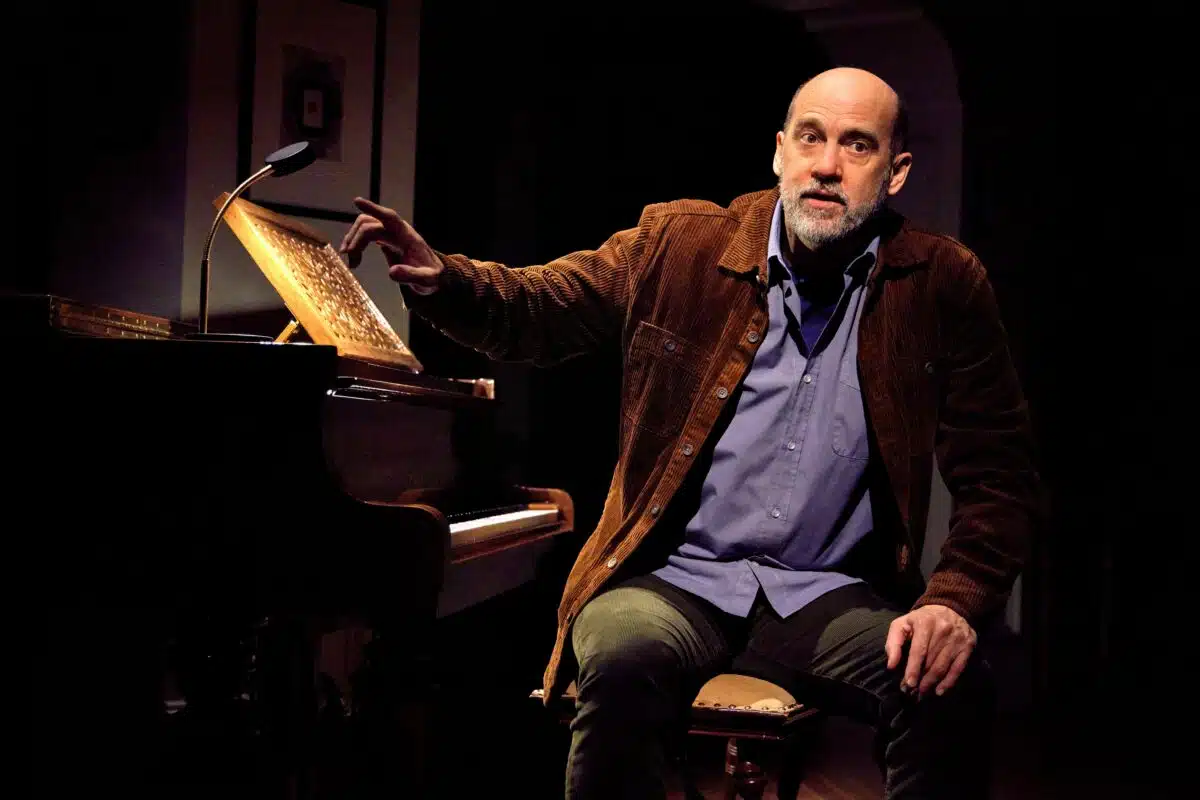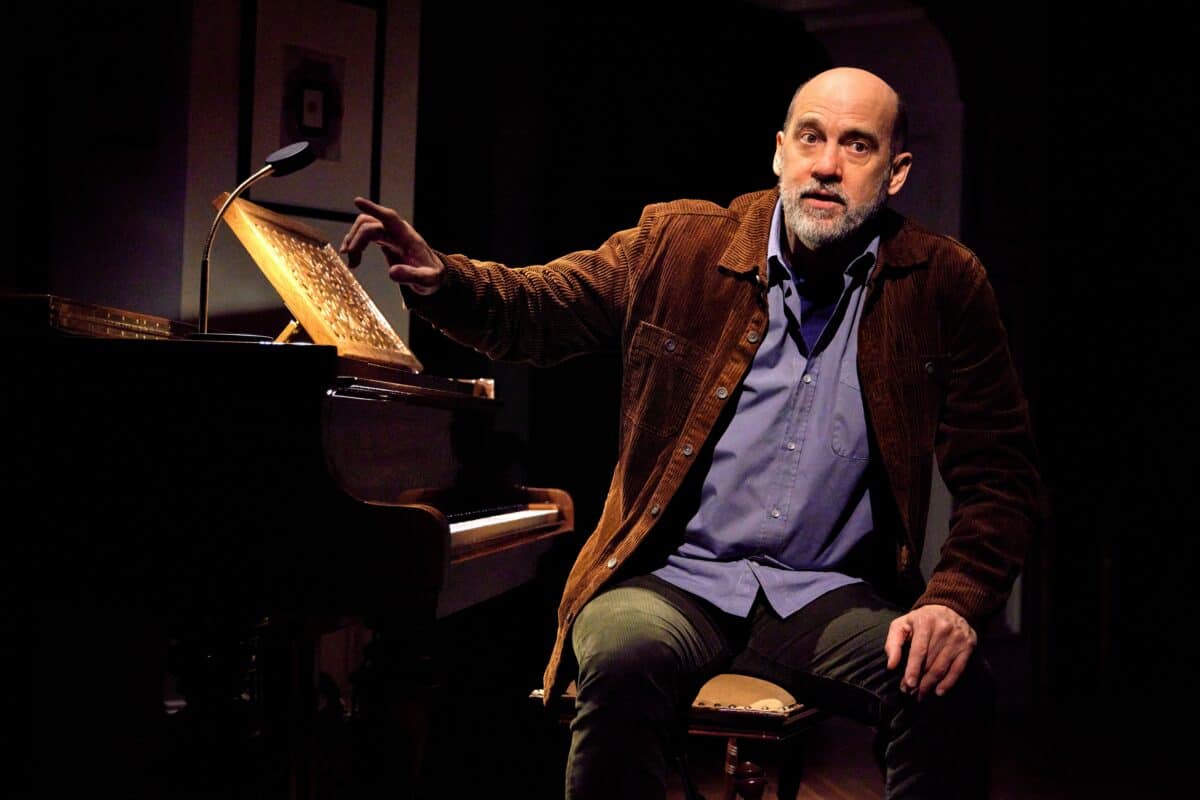

Anthony Edwards as seen in “Prayer for the French Republic”
Photo by Jeremy Daniel
“Why do they hate us?” So asks Pierre Salomon, a Holocaust survivor in his 80’s, to his 26-year-old grandson Daniel after being told that Daniel’s family, including Pierre’s adult daughter Marcelle, is relocating from France to Israel (despite not knowing Hebrew or virtually anyone there) because they genuinely fear for their safety due to rising anti-Semitism in “Prayer for the French Republic,” Joshua Harmon’s long-winded (running three hours and 15 minutes) but powerful drama of family, religious identity, politics, and occasional humor.
Of course, by “us, Pierre (Richard Masur) is referring to the Jews and asking why so many people today, and throughout history, have disliked, targeted, and persecuted the Jews.
“Prayer for the French Republic” takes place in Paris in 2016 and 2017, around the time that Marine Le Pen (whose far-right political party, previously known as the National Front, has historical ties to members of the Nazi party) came close to becoming president of France and as Donald Trump shocked the world by winning the American presidency.
The production (with precise direction by David Cromer and superb ensemble performances) was produced by Manhattan Theatre Club two years ago at its Off-Broadway space at City Center. As it has done in the past with select other acclaimed productions, MTC has brought back “Prayer for the French Republic” for an encore run on Broadway.
It begins with Molly (Molly Ranson), a distant American cousin, visiting the family in Paris during her college year abroad. As Molly speaks with Marcelle (Betsy Aidem), an accomplished medical professor in her 50’s, her son Daniel (Aria Shahghasemi) arrives home, all bloodied up and bruised following what appears to have been a hate attack. Unlike the rest of his family, Daniel had recently become more religious, even wearing a yarmulke in public, which his mother believes makes him a walking target.
The play then follows the family over the course of a year, as Molly and Daniel grew closer and the others, including Marcelle’s husband Charles (Nael Nacer), brother Patrick (Anthony Edwards), and daughter Elodie (Francis Benhamou), debate history and consider their own circumstances.
All the while, the play is interlaced with flashbacks to the 1940’s, during and after the Nazi occupation of Paris, as Marcelle’s father Pierre, as a teenager (Ethan Haberfield), returns home with his father (Ari Brand) after having been in a concentration camp. Amazingly, Pierre’s elderly grandparents (Nancy Robinette and Daniel Oreskes) evaded arrest by the Nazis.
While the production itself is essentially the same as before (although some members of the cast have changed), it exerts a very different, much darker and more urgent impact today in light of the current state of the world, including the October 7 attack on Israel and increasingly vocal backlash against Israel from around the world as it targets Hamas in Gaza. One wonders whether Marcelle and Charles, who viewed Israel as a haven for Jews, even despite the recurring violence of the Middle East, would have still felt that way today.
Over the past year, there have been a number of plays and musicals dealing with anti-Semitism, some more powerfully than others. Harmon (whose prior works include the comedies “Bad Jews,” “Significant Other” and “Admissions”) takes the genre to the next level by not just depicting anti-Semitism or warning against it but in earnestly trying to wrestle with how to respond to it, including the limits of intellectually analyzing it, and whether to fight it or flee for safety.
Samuel J. Friedman Theatre, 261 W. 47th St., manhattantheatreclub.com. Through Feb. 18.
